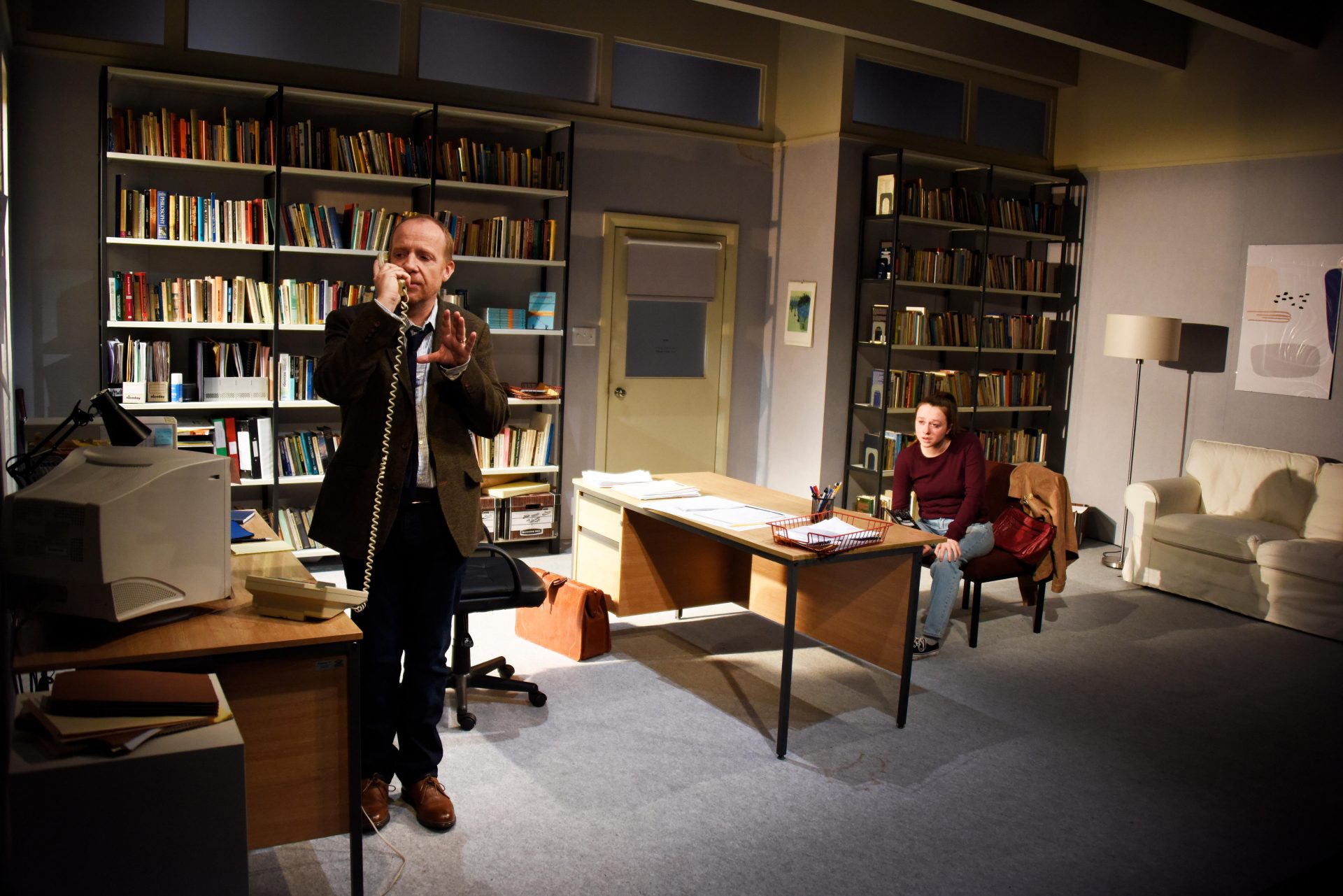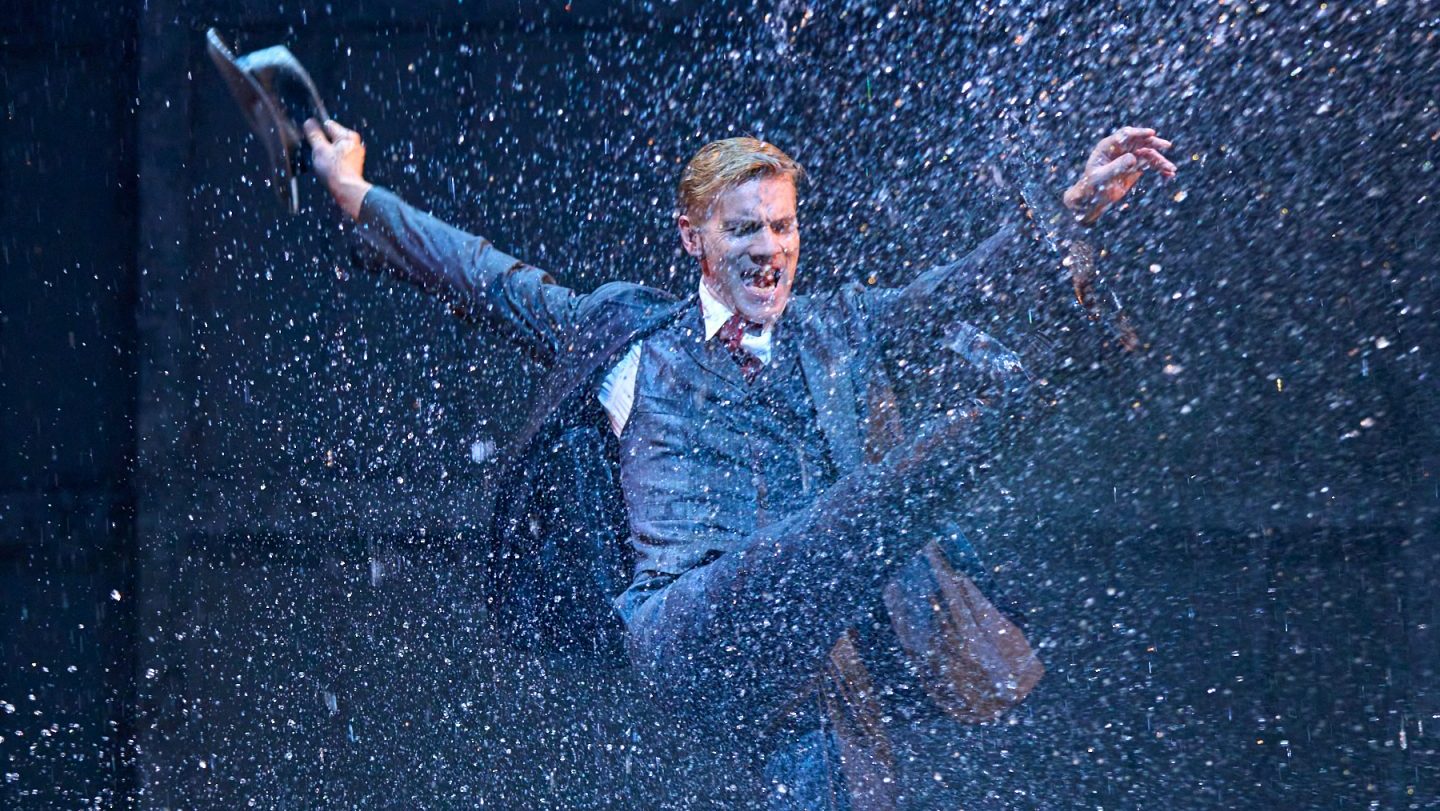Oleanna
Arts Theatre, London, till Oct 31
I guess after the lockdowns – just as it was when the Spanish flu, the Great Depression and one or two wars ended – theatre professionals decided either individually or collectively to stage a lot of musicals on the basis that everyone needed cheering up.
It’s been like this in London and the regions for a while now, but there’s perhaps a limit to how much cheering up people can cope with. David Mamet’s Oleanna – an intrinsically depressing piece about sexual harassment – therefore comes as a change of pace if nothing else. The piece was first put on in 1992 when few, if any, playwrights were willing to get into the issue at all. The Harvey Weinstein scandal and the #MeToo movement have to some extent rendered it obsolete, but it says a lot for Mamet that he would at least try to begin a serious conversation about such a challenging subject.
The argument against the play almost 30 years on, is its moral ambivalence. The audience is encouraged to sympathise with John – the gormless university lecturer played in this revival by Jonathan Slinger – and maybe to conclude that sexual harassment is not so much an ordeal for all too many women, but a matter simply of interpretation.
Rosie Sheehy does her best playing Carol, the student who is the victim of John’s arguable advances, but there is little she can do to make hers a character we care a great deal about. Insipid to begin with, Carol makes a less than convincing transformation into an articulate and determined champion of women’s rights towards the end.
Lucy Bailey, the director, tries to move things along at a brisk pace, but that’s easier said than done. Mamet had won a Pulitzer Prize and received Tony nominations for his plays Glengarry Glen Ross and Speed the-Plow by the time he got around to Oleanna and I think that success had made him complacent.
He breaks a lot of basic rules – long telephone calls where the audience has no idea what the person at the other end of the line is saying and the tedium of the two protagonists facing each other over a desk for long periods of time. Slinger, who seems to get all the strange and sinister characters that Jason Watkins hasn’t got the time to play, does what he can, but, like Sheehy, he’s shackled with a character that isn’t really believable.
He makes the most of this, but ultimately I’m not sure this play has aged terribly well.




